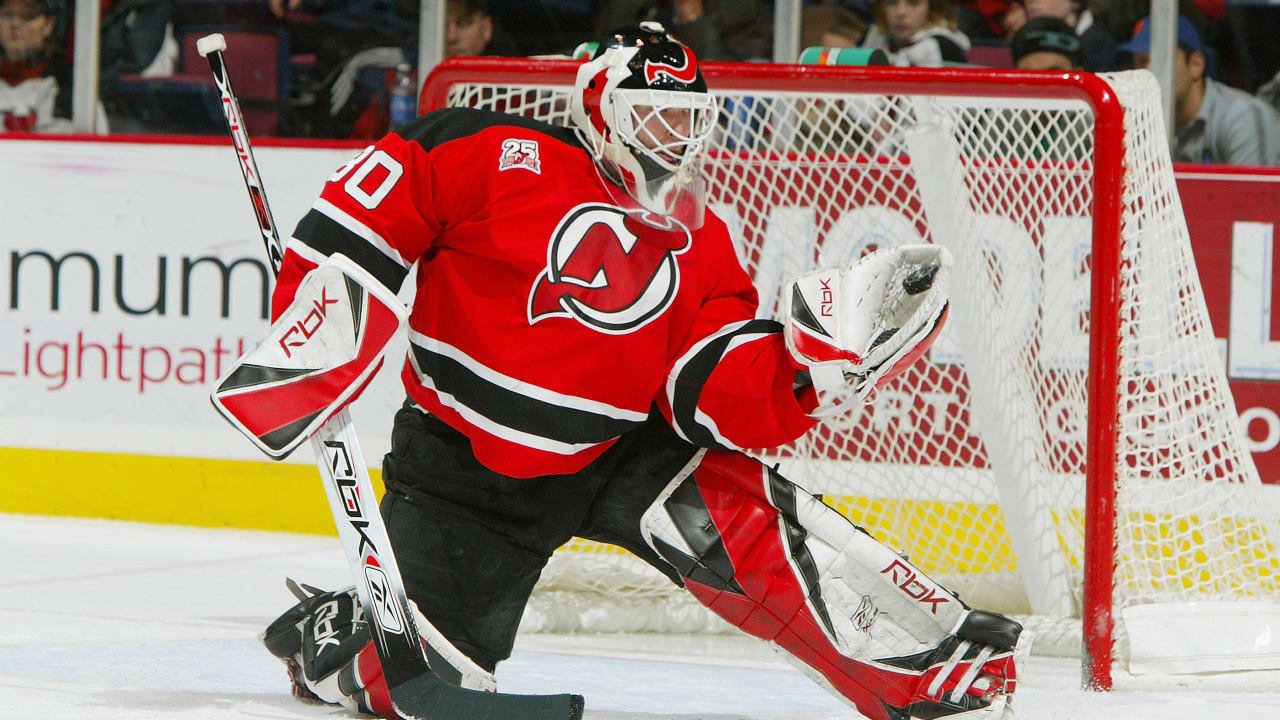Was Marty just randomly better in those seasons?
And just to put a finer point on this: EXACTLY. This what I've been saying for years and years and years here.
Do goalies
actually fluctuate in quality this much? Do they really play that much better some seasons versus others that tracks pretty closely to substantial team tactics changes? Sometimes? Sure. But it's pretty outrageous these swings. And yes, we get the Zach Hyman type situations for skaters too...the old "partner of Lidstrom" plus/minus guy...we aren't so quick to "fall" for those. The ol' "Kunitz is only in the Olympics because of Crosby" line, etc.
But with goalies, folks predominantly fall for it hook, line, and sinker.
You ask a great question. Was Marty better in those seasons? Perhaps. Was he worse in the other seasons? Maybe, maybe not.
GAA is a relative figure too. Ok, Brodeur goes from 2nd to 7th in GAA or whatever. Well, did he play worse? Did a defensive team end up splitting goalie duties to net two top finishers? Did a complete gibberish man that wasn't worth figuring out during the regular season pop in and pop out for a couple years like Cechmanek?
And I don't mean to complicate that analysis because it's just some averaging stats separated by a couple hundredths of a goal...I'd rather sit and go through the film and go, "all right, are his skills a 7 or an 8?", "is he anticipating at an 8 level or is he super, super elite?" And I know that's not for everyone and I'm not asking anyone to abide by that...but that's going to tell us a whole lot more than 2.28 vs 2.19 and trying to manufacture reasons behind that. How many hundredths of a goal is a messy in-season divorce worth? haha
You're already prepared to bias your data to help goalies that play a certain style (65 game cutoff), so when you cut off the extra games that Brodeur plays, are you taking his worst GA performances with him because those were damaged by the workload? Right? Like, it's an average...either of us can twist that number to say almost anything we want.
I'm not saying it's rubbish or that the work is irrelevant or that the number is irrelevant. None of that. But...
In 1998, when he's with Lemaire and has a 2nd place finish...
For one, like you said, qualifying games - he's got minor leaguers Robbie Tallas and Petr Skudra who had 14 and 17 games between them sitting at 1.83.
But otherwise, you got Belfour, Barrasso, Hasek with Brodeur in sitting under 2.1 - all HOFers. Cool, sounds good. Good group.
When Brodeur falls out of it in '99...
Ron Tugnutt - in the minors in '96 - gets behind Jacques Martin for 40 decisions goes 1.79.
Hasek and Belfour remain.
Pat Burns lands in Boston: Byron Dafoe goes sub 2 (!)
Roger Nielson turns off the faucet on shots in Philadelphia because shooting on Hextall was a real weakness, but at the same time Beezer goes there and hits it big.
Arturs Irbe gets a team change to Carolina and he gets in there too under young Paul Maurice.
So, if Beezer just stays in Florida, Irbe stays in Vancouver, Tugnutt gets passed over for a call up or however he ended up in Ottawa...bam, right there he's top 5. Pat Burns fails a piss test for Boston and the job goes to Eddie Johnston, that washes Dafoe out and now he's 4th.
And I understand that that's the nature of things, but that's just it...that's the nature of things.
To use your question: Was Ron Tugnutt randomly better than Brodeur (and Hasek and Belfour and Roy) that year? Or did he just average out a little better?
As a GM, would you trade Brodeur for Dafoe?
Even the numbers aren't exactly telling the truth, unless we're expanding sig figs here...Brodeur's "non top 10 finish in GAA" in 1999 is this...
1. Tugnutt 1.79 (40 decisions)
2. Hasek 1.87 (62)
3. Belfour 1.99 (59)
4. Dafoe 2.00 (66)
5. Khabibulin 2.13 (63)
6. Vanbiesbrouck 2.19 (60)
7. Shields 2.22
(34)
t-7. Irbe 2.22 (59)
9. Turek
2.29 (22)
t-9. Roy
2.29 (59)
t-9. Brodeur
2.29 (70)
Again, I'm not in the business of telling anyone coaching doesn't matter. Brodeur's goal numbers were helped by playing for defensive teams. His save percentage probably wasn't. But you ask a great question...was he randomly worse? Do goalies randomly fluctuate this much versus skaters?
Yeah...probably not. Must be a big influence out there and we need to account for it...evaluate the goalie, not the coach, in my opinion.

